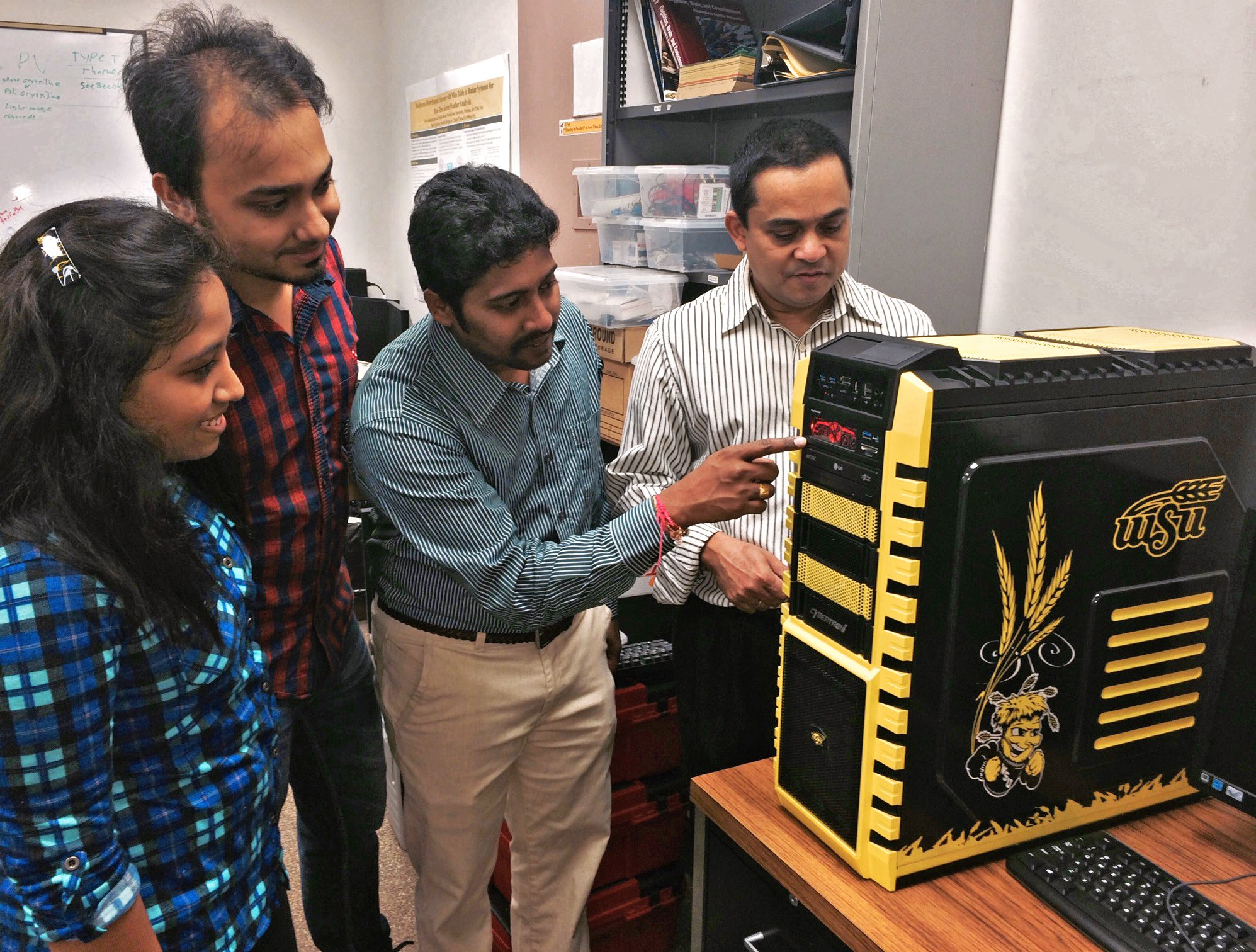A high performance computing (HPC) laboratory at Wichita State University directed by Abu Asaduzzaman has been named a GPU (graphics processing unit) Research Center by NVIDIA, the world leader in visual computing. GPU Research Centers are institutions that embrace and utilize GPU technologies across multiple research fields and are at the forefront of some of the world's most innovative scientific research.
The coveted designation goes to the Asaduzzaman’s Computer Architecture and Parallel Program Laboratory (CAPPLab), which has been recognized for its advanced research in early detection of cancer, effective management of renewable energy and data regrouping-based parallel computation using GPU. As a GPU Research Center, the CAPPLab will gain pre-release access to NVIDIA GPU hardware and software, the opportunity to attend exclusive events with key researchers and academics, a designated NVIDIA technical liaison, and access to specialized online and in-person training sessions.
“Dr. Asaduzzaman’s research has a great potential to serve local, domestic and international requirements for high-performance computing,” said John Tomblin, WSU’s vice president for research and technology transfer. “I thank NVIDIA for acknowledging and supporting Dr. Asaduzzaman’s HPC research activities.”
GPU-accelerated computing leverages the parallel processing capabilities of GPU accelerators and enabling software to deliver dramatic increases in performance for scientific computing, deep learning, data analytics, desktop virtualization, engineering, graphics, high performance computing (HPC), and other computationally demanding applications.
The CAPPLab was selected as an NVIDIA GPU Education Center in 2012 (formerly known as NVIDIA CUDA Teaching Center). CAPPLab has been focusing on research using GPUs to develop “parallel” algorithms to solve "data-dependent" problems such as distribution of electric charge density. Asaduzzaman has been developing GPU-accelerated, high-performance pattern recognition techniques for detecting cancer.
The accelerated computing solutions developed by Asaduzzaman are being used by Ramazan Asmatulu, associate professor in mechanical engineering, and Mizan Rahman, CEO and founder at M2SYS Technology. Asaduzzaman envisions that the GPU Research Center at WSU would be the center for massively parallel multithreaded multicore/many-core programming in Kansas and the Midwest. Rahman says Asaduzzaman’s research on GPU-accelerated computing is highly relevant to reliable “clean” computing required by innovative cloud and mobile solutions with robust identity management technology.
“The outcomes of Dr. Asaduzzaman’s HPC research using GPU-accelerated computing will help other WSU research communities such as Big Data at WSU,” said Janet M. Twomey, interim associate dean for graduate education, research and faculty development in the WSU College of Engineering.


 File
File